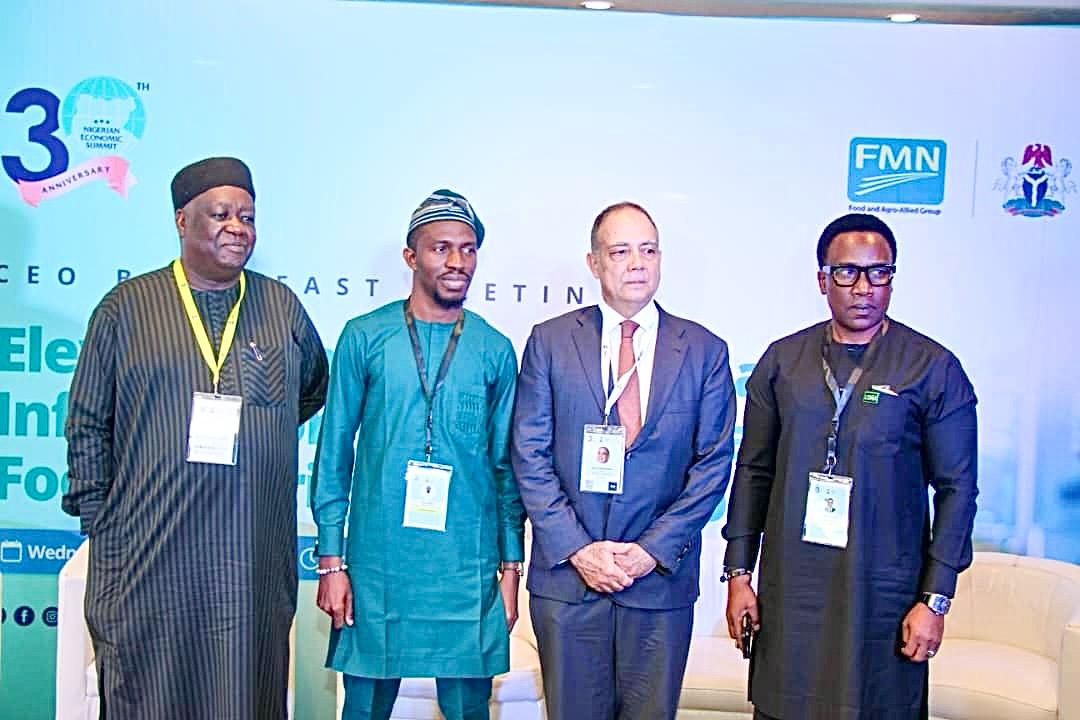NiMet Boss Highlights Importance of Meteorological Data in Empowering Farmers for Climate-Smart Decisions

In a bid aimed at bolstering the resilience of Nigeria’s agricultural sector amid rising climate challenges, Professor Charles Anosike, the Director-General and Chief Executive Officer of the Nigerian Meteorological Agency (NiMet), has emphasised the pivotal role of meteorological data in empowering farmers to make climate-smart decisions.
He made this assertion while addressing participants at the Chief Executive Officers breakfast session held on Tuesday, 16th October 2024, at Transcorp Hilton, Abuja.
The session, themed ‘Elevating the Role of Data and Information in the National Food Security Conversation’, was organised by the Federal Ministry of Finance, Budget and National Planning, in collaboration with the Nigeria Economic Summit Group (NESG).
The event drew attention to the critical role of data in addressing food security issues in the face of intensifying climate change effects.
During his address, Prof. Anosike underscored that the impact of climate change on the global food system is becoming more pronounced, with developing nations particularly vulnerable.
In countries like Nigeria, where agriculture remains predominantly rain-fed, providing farmers with accurate weather and climate information is vital for mitigating the unpredictable effects of climate change.
“Translation of meteorological data into actionable insights enables farmers to make climate-smart decisions with confidence and resilience,” Prof. Anosike remarked.
He highlighted NiMet’s commitment to delivering timely, data-driven solutions that not only curb the adverse impacts of climate change but also boost agricultural productivity.
Prof. Anosike observed that climate change has increasingly led to declining soil fertility and the spread of plant pests and diseases.
He stressed that understanding the complex global climate system is key to effectively responding to these challenges, and that meteorology plays a fundamental role in this regard.
“Meteorology brings climate science and data in support of climate disaster management and climate change adaptation,” he stated, adding that no single institution or country can tackle the complexities of the global climate system alone.
The NiMet boss further elaborated on the practical applications of climate data in agriculture. “Climate data is used for producing a range of forecasts – from seasonal to sub-seasonal and short-range – that influence agricultural production systems.
Critical components like the onset of the season, projected end, amount of rainfall, length of the season, and predicted dry spells are all essential for effective agricultural planning,” he explained.
Prof. Anosike concluded by reinforcing the importance of integrating meteorological data into the national food system’s data tools, which are essential for agricultural productivity, food security risk assessments, and sustainable development efforts.
“The integration of these datasets enables stakeholders, from farmers to policymakers, to make informed decisions that enhance resilience against climate variability and promote sustainable practices,” he affirmed.
Also speaking at the event, Dr. Audu Grema, Senior Programme Officer for Agriculture at the Bill and Melinda Gates Foundation, commended NiMet for its collaborative efforts in predictive analysis and early warning systems, noting that these initiatives are crucial to development planning and ensuring best practices across the agricultural industry.







